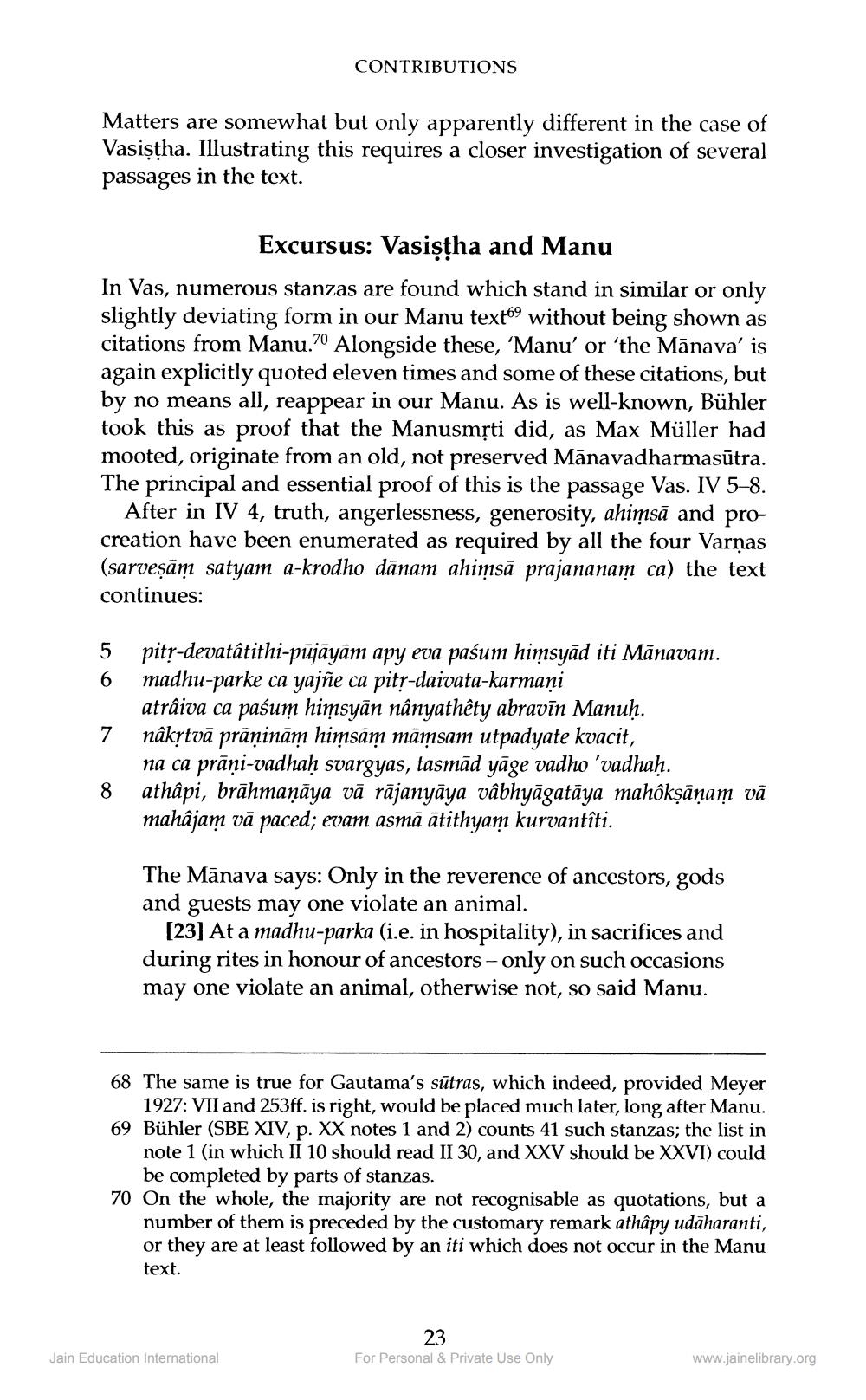________________
CONTRIBUTIONS
Matters are somewhat but only apparently different in the case of Vasiştha. Illustrating this requires a closer investigation of several passages in the text.
Excursus: Vasiştha and Manu In Vas, numerous stanzas are found which stand in similar or only slightly deviating form in our Manu text69 without being shown as citations from Manu.70 Alongside these, Manu' or 'the Mānava' is again explicitly quoted eleven times and some of these citations, but by no means all, reappear in our Manu. As is well-known, Bühler took this as proof that the Manusmộti did, as Max Müller had mooted, originate from an old, not preserved Mānavadharmasūtra. The principal and essential proof of this is the passage Vas. IV 5–8.
After in IV 4, truth, angerlessness, generosity, ahiņsā and procreation have been enumerated as required by all the four Varņas (sarveşām satyam a-krodho dānam ahimsā prajananam ca) the text continues:
5 6
7
pity-devatâtithi-pūjāyām apy eva paśum himsyād iti Mānavam. madhu-parke ca yajñe ca pity-daivata-karmaņi atrâiva ca paśum himsyān nânyathêty abravīn Manuḥ. nâkrtvā prāņinām himsām māmsam utpadyate kvacit, na ca prāņi-vadhaḥ svargyas, tasmād yāge vadho 'vadhaḥ. athôpi, brāhmaṇāya vā rājanyāya vâbhyāgatāya mahôkşāņam vā mahâjam vā paced; evam asmā ātithyam kurvantîti.
8
The Mānava says: Only in the reverence of ancestors, gods and guests may one violate an animal.
[23] At a madhu-parka (i.e. in hospitality), in sacrifices and during rites in honour of ancestors - only on such occasions may one violate an animal, otherwise not, so said Manu.
68 The same is true for Gautama's sūtras, which indeed, provided Meyer
1927: VII and 253ff. is right, would be placed much later, long after Manu. 69 Bühler (SBE XIV, p. XX notes 1 and 2) counts 41 such stanzas; the list in
note 1 (in which II 10 should read II 30, and XXV should be XXVI) could
be completed by parts of stanzas. 70 On the whole, the majority are not recognisable as quotations, but a
number of them is preceded by the customary remark athậpy udāharanti, or they are at least followed by an iti which does not occur in the Manu text.
23 For Personal & Private Use Only
Jain Education International
www.jainelibrary.org




